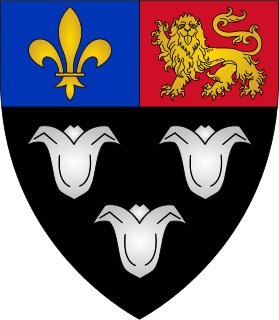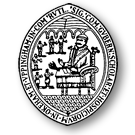Henry de Winton and John Charles Thring were influential in the development of modern codes of football. In 1848, as undergraduates at the University of Cambridge they developed a set of rules, under which some games were played. [1] These Cambridge Rules were more widely adopted in England,[ citation needed ] and influenced the later codes of association football,[ citation needed ] Australian rules football [ citation needed ] and other games.

Football is a family of team sports that involve, to varying degrees, kicking a ball to score a goal. Unqualified, the word football is understood to refer to whichever form of football is the most popular in the regional context in which the word appears. Sports commonly called football in certain places include association football ; gridiron football ; Australian rules football; rugby football ; and Gaelic football. These different variations of football are known as football codes.

The University of Cambridge is a collegiate public research university in Cambridge, United Kingdom. Founded in 1209 and granted a Royal Charter by King Henry III in 1231, Cambridge is the second-oldest university in the English-speaking world and the world's fourth-oldest surviving university. The university grew out of an association of scholars who left the University of Oxford after a dispute with the townspeople. The two 'ancient universities' share many common features and are often referred to jointly as 'Oxbridge'. The history and influence of the University of Cambridge has made it one of the most prestigious universities in the world.

England is a country that is part of the United Kingdom. It shares land borders with Wales to the west and Scotland to the north-northwest. The Irish Sea lies west of England and the Celtic Sea lies to the southwest. England is separated from continental Europe by the North Sea to the east and the English Channel to the south. The country covers five-eighths of the island of Great Britain, which lies in the North Atlantic, and includes over 100 smaller islands, such as the Isles of Scilly and the Isle of Wight.





